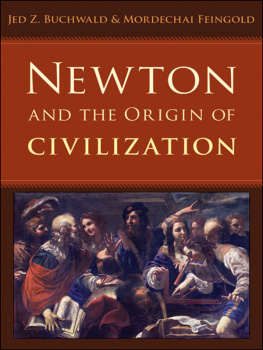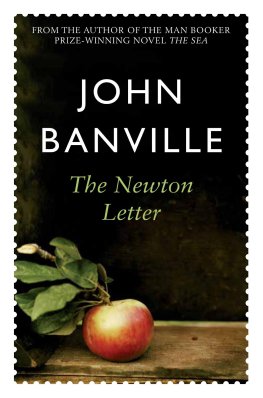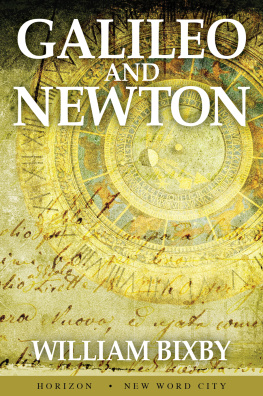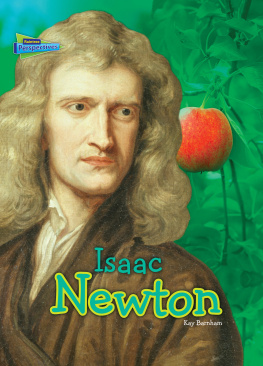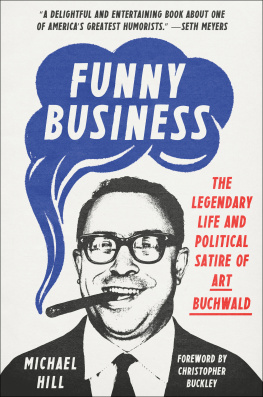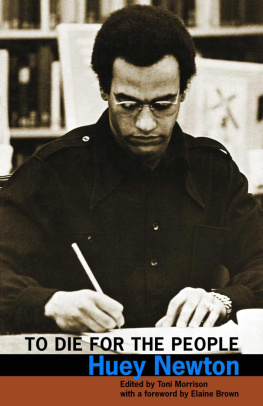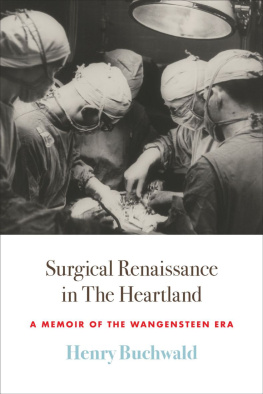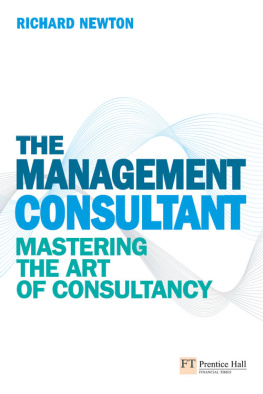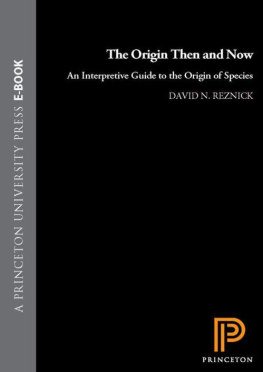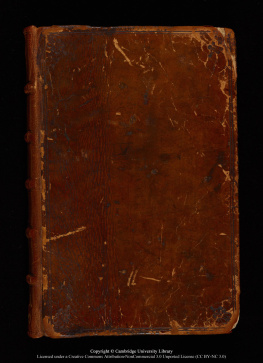Buchwald Jed Z. - Newton and the Origin of Civilization
Here you can read online Buchwald Jed Z. - Newton and the Origin of Civilization full text of the book (entire story) in english for free. Download pdf and epub, get meaning, cover and reviews about this ebook. year: 2012, publisher: Princeton University Press, genre: Religion. Description of the work, (preface) as well as reviews are available. Best literature library LitArk.com created for fans of good reading and offers a wide selection of genres:
Romance novel
Science fiction
Adventure
Detective
Science
History
Home and family
Prose
Art
Politics
Computer
Non-fiction
Religion
Business
Children
Humor
Choose a favorite category and find really read worthwhile books. Enjoy immersion in the world of imagination, feel the emotions of the characters or learn something new for yourself, make an fascinating discovery.
- Book:Newton and the Origin of Civilization
- Author:
- Publisher:Princeton University Press
- Genre:
- Year:2012
- Rating:5 / 5
- Favourites:Add to favourites
- Your mark:
- 100
- 1
- 2
- 3
- 4
- 5
Newton and the Origin of Civilization: summary, description and annotation
We offer to read an annotation, description, summary or preface (depends on what the author of the book "Newton and the Origin of Civilization" wrote himself). If you haven't found the necessary information about the book — write in the comments, we will try to find it.
Newton and the Origin of Civilization — read online for free the complete book (whole text) full work
Below is the text of the book, divided by pages. System saving the place of the last page read, allows you to conveniently read the book "Newton and the Origin of Civilization" online for free, without having to search again every time where you left off. Put a bookmark, and you can go to the page where you finished reading at any time.
Font size:
Interval:
Bookmark:

Newton
and the
Origin of Civilization
Newton
and the
Origin of Civilization

Jed Z. Buchwald & Mordechai Feingold
PRINCETON UNIVERSITY PRESS
PRINCETON AND OXFORD
Copyright 2013 by Princeton University Press
Published by Princeton University Press,
41 William Street, Princeton, New Jersey 08540
In the United Kingdom: Princeton University Press, 6 Oxford Street,
Woodstock, Oxfordshire OX20 1TW
press.princeton.edu
Jacket art: Gli Astronomi, inv. 269; Niccol Tornioli.
Courtesy of the Galleria Spada, Rome.
All Rights Reserved
Library of Congress Cataloging-in-Publication Data
Buchwald, Jed Z.
Newton and the origin of civilization / Jed Z. Buchwald and Mordechai Feingold.
p. cm.
Includes bibliographical references and index.
ISBN 978-0-691-15478-7 (hardcover : acid-free paper) 1. Newton, Isaac, Sir, 16421727. 2. Newton, Isaac, Sir, 16421727Philosophy. 3. Newton, Isaac, Sir, 16421727Public opinion. 4. ScientistsEnglandBiography. 5. PhilosophersEnglandBiography. 6. Newton, Isaac, Sir, 16421727. Chronology of ancient kingdoms amended. 7. Chronology, HistoricalHistory17th century. 8. Civilization, AncientPhilosophy. 9. EuropeIntellectual life17th century. 10. Public opinionEuropeHistory17th century. I. Feingold, Mordechai. II. Title.
QC16.N7B93 2012
530.092dc23
2012024733
British Library Cataloging-in-Publication Data is available
This book has been composed in Minion Pro and Centaur
Printed on acid-free paper.
Printed in the United States of America
1 3 5 7 9 10 8 6 4 2
I n the course of writing this book we have incurred many debts. We are grateful to friends and colleagues who generously assisted our research, responded to queries, or commented on draft chapters: Roger Ariew, Henk Bos, Diana Kormos Buchwald, Andreas Corcoran, Ginevra Crosignani, Steffen Ducheyne, Anthony Grafton, Chantal Grell, Niccol Guicciardini, Kristine Haugen, John Heilbron, Rob Iliffe, Tom Levinson, Rhodri Lewis, Mike Mahoney, Scott Mandelbrote, William Newman, John North, Adam Perkins, Mac Pigman, William Poole, Larry Principe, Jamil Ragep, Alan Shapiro, George Smith, Noel Sugimura, Noel Swerdlow, and Nico Wey-Gomez. We also express our gratitude for assistance received from various libraries: the Caltech Archive, the National Library of Israel, the Bodleian Library, the Cambridge University Library, the Library of New College, Oxford, and the Huntington Library. Special thanks to the staff of the interlibrary loan system at Caltech, who managed to get for us every article and book we required. Finally, we also express our gratitude to the Andrew A. Mellon Foundation, for generously supporting two research programs at Caltech, aimed at investigating the manifold issues raised by the use of evidence and reason during the long eighteenth century. That agenda helped sharpen our own understanding of the changing nature of evidence during the seventeenth century, in general, and the unique evidentiary basis of Newtons investigations, in particular.
Newton
and the
Origin of Civilization
Newtons writings on biblical subjects seem to me especially interesting because they provide deep insight into the characteristic intellectual features and working methods of this important man. The divine origin of the Bible is for Newton absolutely certain, a conviction that stands in curious contrast to the critical skepticism that characterizes his attitude toward the churches. From this confidence stems the firm conviction that the seemingly obscure parts of the Bible must contain important revelations, to illuminate which one need only decipher its symbolic language. Newton seeks this decipherment, or interpretation, by means of his sharp systematic thinking grounded on the careful use of all the sources at his disposal.
Draft of a letter from Albert Einstein to Abraham Yahuda.
September 1940
I n 2006, archaeologists announced that the ancient Minoan kingdom on the island of Crete was a century older than had been thought. Radiocarbon dating of tree rings and seeds, coupled to statistics, placed the volcanic explosion of Thera, which likely ended the Minoan period, to between 1660 and 1613 BCE. This had disturbing consequences. It had been long held that the Minoan period overlapped the New Kingdom in Egypt, which began about 1550 BCE, and that contacts existed between the two civilizations. The revised dating made this impossible, since at the earlier time the Egyptians were ruled by Canaanite foreigners, the Hyksos. Nevertheless, the New York Times reported, early indications suggest that proponents of the later chronology are not backing down. Their main line of defense is the Egyptian historical chronology, derived from its written records as well as pottery and iconography. They insist that a chronology tied to the Egyptian record could not be off by as much as 100 years. Evidence drawn from a source that knows neither culture nor historythe traces of radiocarbonsuddenly battled in 2006 with the remnant words and art of antiquity. Still, the proponents of text and relic held their ground, while an archaeologist argued that the dates offered in the textbooks for these periods have always been interpretations and estimates with little evidence. The proper solution requires
Disputes over chronology with overtones of a divide between the text and the laboratory or field, between the humanist and the scientist, have been raging since the sixteenth century. Though even in antiquity bits of astronomy had intrigued those interested in chronology, only after the Reformation did calculation begin to intersect fruitfully with philology. Anthony Grafton notes that in Rudolphine Prague, where Johannes Kepler lived and worked for a time, astronomy and chronology were fused into a single pursuit not identifiable with any modern discipline. The barriers between humanistic scholarship and computational science had not then been fully erected, and considerable interaction took place between philology and astronomy. Nevertheless, signs of discord were already visible. The great humanistic scholar Joseph Scaliger, though not by any means the first to make use of astronomical tidbits to reset chronologys clock, corresponded with both Kepler and Tycho Brahe in his attempt to elicit satisfying results by means of an astronomical armamentarium. A century later, the relationship between the two disciplines turned decidedly frosty when Isaac Newton intruded calculations into the precincts of history and philology by virtually turning certain texts into numbers and tampering with others to fit his reckonings.
Around 1700 (and concertedly so by 1704), the fifty-eight-year-old Newtonthen Master of the Mintbegan applying himself seriously to technical chronology, supplementing the historical studies he had been working on for the past decade and a half. The extensive notes he took ranged from excerpts of, and commentaries on, such classical sources as Herodotus, Clement of Alexandria, Diodorus Siculus, and Eusebius, to material extracted from Scripture, and elaborate astronomical and genealogical computations. The astronomical material was drawn for the most part from Denis Petaus Uranologion, which included a Latin translation of Hipparchus critical
Next pageFont size:
Interval:
Bookmark:
Similar books «Newton and the Origin of Civilization»
Look at similar books to Newton and the Origin of Civilization. We have selected literature similar in name and meaning in the hope of providing readers with more options to find new, interesting, not yet read works.
Discussion, reviews of the book Newton and the Origin of Civilization and just readers' own opinions. Leave your comments, write what you think about the work, its meaning or the main characters. Specify what exactly you liked and what you didn't like, and why you think so.

